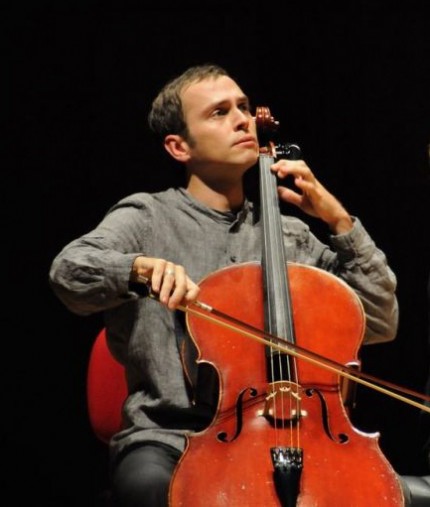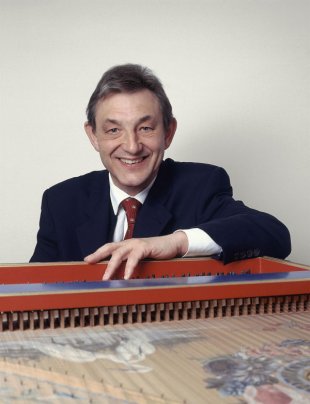Russian cellist makes spectacular U.S. debut with Pinnock and the Chicago Symphony Orchestra

Pavel Gomziakov made his U.S. debut Thursday night with conductor Trevor Pinnock and the Chicago Symphony Orchestra.
For those who came of classical-CD collecting maturity—if there is such a thing—in the 1980s, Trevor Pinnock’s performances with the English Concert were touchstones. Less aggressively dogmatic than Christopher Hogwood and the Academy of Ancient Music, and less audacious and controversial than Nikolaus Harnoncourt, Pinnock’s English Concert performances offered the best of both worlds, with recordings of Handel, Bach and Mozart that brought a winning mix of fresh, youthful dynamism, historically informed musical insight and tonal refinement.
Like many recording stalwarts of the era, Pinnock’s profile has dipped along with the recording industry as a whole, but judging by the stylish performances he led Thursday night in a belated debut with the Chicago Symphony Orchestra, the English conductor still has plenty to say in his chosen Classical/neo-Classical repertoire and the means to get it done.
Yet, fine as his podium direction was, Pinnock ceded status Thursday night to another debutant, Russian cellist Pavel Gomziakov, who made a spectacular U.S. debut.
One doesn’t usually think of Haydn’s Cello Concerto in C major as a spellbinding solo vehicle but the young Russian had the Orchestra Hall audience on the edge of its collective seat Thursday night from the very first note.
He was aided immensely by performing on a celebrated 1703 Tecchler, an instrument on loan from Chicago’s Stradivari Society, which was previously played by Jacqueline du Pré and Lynn Harrell, The remarkable “ex-Romberg” cello has a dark, burnished tone and a kaleidoscopic palette of hues, its rich resources fully and imaginatively exploited by Gomzikov.
The young soloist brought a welcome 21st-century edge to the opening Moderato—not one of Haydn’s most compelling movements—mining the cello’s metallic side, yet his fluent passagework still keeping within Rococo style. The Russian cellist’s flowing Adagio distilled the expressive essence with a cantilena-like quality to his solo lines, and strikingly subtle gradations of color and dynamics.
The finale was edge-of-the-seat thrilling and Gomziakov’s playing astounding. Taken at a lightning tempo, the cellist’s agility and feather-like vivacity hurdled every difficulty, with Pinnock and a clearly responsive orchestra echoing every hairpin dynamic and color change by their soloist. This was a hugely impressive debut by a young musician who is clearly on his way to having a major career.
Amazingly, Mozart’s Symphony No. 40 has not been heard on a CSO subscription concert in 15 years. Pinnock led a lithe, springy performance that lacked nothing in urgency or dramatic cut. The Andante was especially distinctive, fresh and unhackneyed with a quirky piquancy to the winds, which effectively sheared off accumulated gravitas from music usually rendered in more monumental fashion.
Two rarities opened the evening. After a dragging tempo for the introduction, Pinnock and the orchestra delivered a vital and energized account of Haydn’s dramatic overture to his opera L’isola disabitata, the CSO premiere showing again how much of Haydn’s vast oeuvre still remains to be discovered.
More intriguing still was Masques et bergamasques of Gabriel Fauré. The French composer may have cobbled this late theatrical incidental music together using some previously existing scores, but the result is delightful and wholly characteristic, an affectionate look back at the 18th century.
Under Pinnock’s direction, the playing of the CSO in this suite, Fauré’s final work for orchestra, could not have been more communicative, putting across the quicksilver Haydenesque charm of the Overture, the droll minuet, and the witty Gavotte, in which a playful vivacious theme just can’t seem to help interrupting the stately dance. The concluding Pastorale offers one of those indelible, luxuriant Fauré melodies that feels like sinking into a warm tub, and throughout Pinnock and the CSO judged the balance between lyric richness and buoyant lightness masterfully.
The program will be repeated 8 p.m. Saturday and 7:30 p.m. Tuesday. www.cso.org; 312-294-3000.
